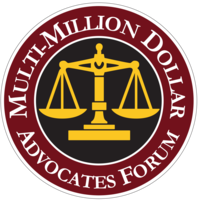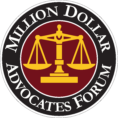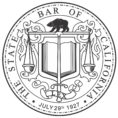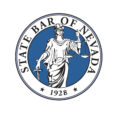Understanding Product Liability in Personal Injury Law

Taking legal action without correctly understanding product liability law is a recipe for disaster. A few pieces of missing information or an incorrect assumption could destroy your chances for a successful civil lawsuit. In contrast, informed decisions under the guidance of legal representation can bring the best outcomes.
The experienced attorneys of Harker Injury Law are ready to help. The following information should answer many of your most pressing questions about product liability claims.
Our legal team also wants to offer you personalized solutions. To schedule a free consultation, complete the form at the bottom of the page.
Defining Product Liability
Liability refers to legal responsibility. Companies have an obligation to make safe goods according to industry standards. If products cause harm, product liability claims allow victims to seek compensation.
Product liability law varies from state to state. However, most product liability claims are based on one of the following: negligence, breach of warranty, or strict liability. The following sections will introduce each of these concepts.
Negligence
Products must undergo various stages of development. First, a designer does research and makes a plan for the product. The company might try different materials and styles, making adjustments based on observations and market tests.
Manufacturers oversee the production process. Retailers sell the products. They may interact with customers, demonstrate the product, or answer questions. Most consumers assume that products are safe when used as intended. Unfortunately, some designers, manufacturers, or retailers fail to exercise reasonable care.
Mistakes or intentional cost-saving shortcuts compromise quality and safety, resulting in:
- Design defects
- Manufacturing defects
- Marketing defects
Your injuries caused by someone’s negligence could qualify you for a personal injury claim. However, some states apply a principle called comparative negligence. Under these laws, the court would examine whether the injured party contributed to the accident. If so, your compensation could be reduced based on your level of responsibility.
Breach of warranty
Warranties are assurances from companies that their products will work as expected. For example, the packaging might assure you that the item is safe, free from product defects, or will last for a certain time.
An express warranty is a specific promise, such as a written guarantee on the packaging or an advertisement stating how long the product will function properly. Implied warranties are legal guarantees that automatically apply to specific products, even if there is no written or spoken promise.
A breach of warranty occurs when the item does not live up to the company’s guarantees. The company may be held responsible if a product fails before the promised time or does not perform as advertised. Unfortunately, some types of product defects even cause harm. Warranty claims protect your rights.
Strict liability
What if a company did not act carelessly? You might wonder whether you can still pursue a product liability lawsuit.
In the United States, the principle of strict liability applies when a defective product causes harm, regardless of the company’s intent or actions. Victims only need to prove that the product was unsafe and caused harm to them or their property.
For example, suppose an airbag fails to open during a car crash. The car company did not intentionally sell a faulty product, but product defects resulted in great harm to you. If the case meets your state’s strict liability criteria, a lawyer can help you build a strict liability claim.
Recalls
Some manufacturers become aware of product defects after the item is already being sold. They might warn customers, offer repairs, or replace the items. In some cases, they remove the item from the market.
Recalls might be issued under the following circumstances:
- Design defects inherent to the product cause it not to work as intended
- Mistakes in the manufacturing process seem likely to result in harm
- Incorrect labeling renders a product unreasonably dangerous to its users
Government agencies like the Consumer Product Safety Commission (CPSC) might enforce a recall if companies do not do it voluntarily. Removing these dangerous items from the market can prevent harm. Yet, recalls do not necessarily relieve a company of legal responsibility.
Experienced lawyers know that recalls can serve as evidence that a product is dangerous. At our law firm, we investigate whether the manufacturer failed to act or notify consumers quickly enough about the defective product.
A seller responsible for knowingly selling recalled goods can also be held liable. If you were injured before recall or the recall did not prevent harm, contact us to learn whether you are eligible for compensation.
Determining Who Is Liable for a Defective Product
When a defective product causes harm, different companies may be responsible. Liability can fall on the manufacturer, the distributor, or even the retailer that sold the item. Each party has a duty to ensure the product is safe before it reaches consumers.
Manufacturers are often the main party held responsible because they design and build the product. If a product has a design flaw, the problem starts before it is made, meaning every unit could be dangerous.
Unlike design defects, manufacturing defects occur during production. For instance, inferior materials might jeopardize the item’s integrity, or workers might fail to assemble it correctly.
Companies must provide clear instructions about how to use their products. Safety warnings should inform the user of potential risks. When companies fail to provide adequate warnings, they may be responsible for preventable injuries.
Even if they did not make the product, distributors and retailers have a duty to sell safe items and inform customers of potential dangers. A lawyer can investigate what went wrong and who is at fault.
A thorough investigation can uncover whether a product is poorly designed, is badly made, or was distributed with inadequate warnings. Identifying the right party is essential for building a strong case and getting fair compensation.
Seeking life-changing compensation
If a defective product caused your injury, you can recover damages. These payments help you recover your losses from the harm you suffered. There are 3 main types.
Economic damages cover financial losses caused by the injury, including:
- Medical expenses for the injured party (e.g., treatment, rehabilitation, medical devices)
- Lost wages from missing work
- Property damage caused by the defective product
What other losses might you encounter besides medical bills and other tangible losses?
Non-economic damages compensate for the personal impact of personal injury cases, such as:
- Pain and suffering from physical harm
- Emotional distress, such as anxiety or trauma
- Loss of enjoyment if you can no longer do activities you love
Punitive damages are meant to punish companies that act recklessly. They apply when a company knowingly sells a dangerous product or ignores safety warnings.
Recovering compensation is not easy. Insurance companies often try to pay as little as possible, and businesses may fight to avoid blame. A lawyer can help push back against these tactics and work for your best interests.
Selecting a Results-Oriented Product Liability Attorney
Product liability cases depend on a thorough investigation to gather evidence, establish liability, and secure a fair settlement. When choosing a lawyer, you need one who understands federal and state regulations.
The attorneys of Harker Injury Law understand the complexities of personal injury cases. We know the laws and regulations that affect the outcome. Why not choose lawyers with a history of success and a focus on results?
The law limits the time you have to file a claim, so it is important to act before the statute of limitations expires. Contact us today to discuss your legal options and begin your journey toward justice. Complete the brief contact form below for a free consultation.










